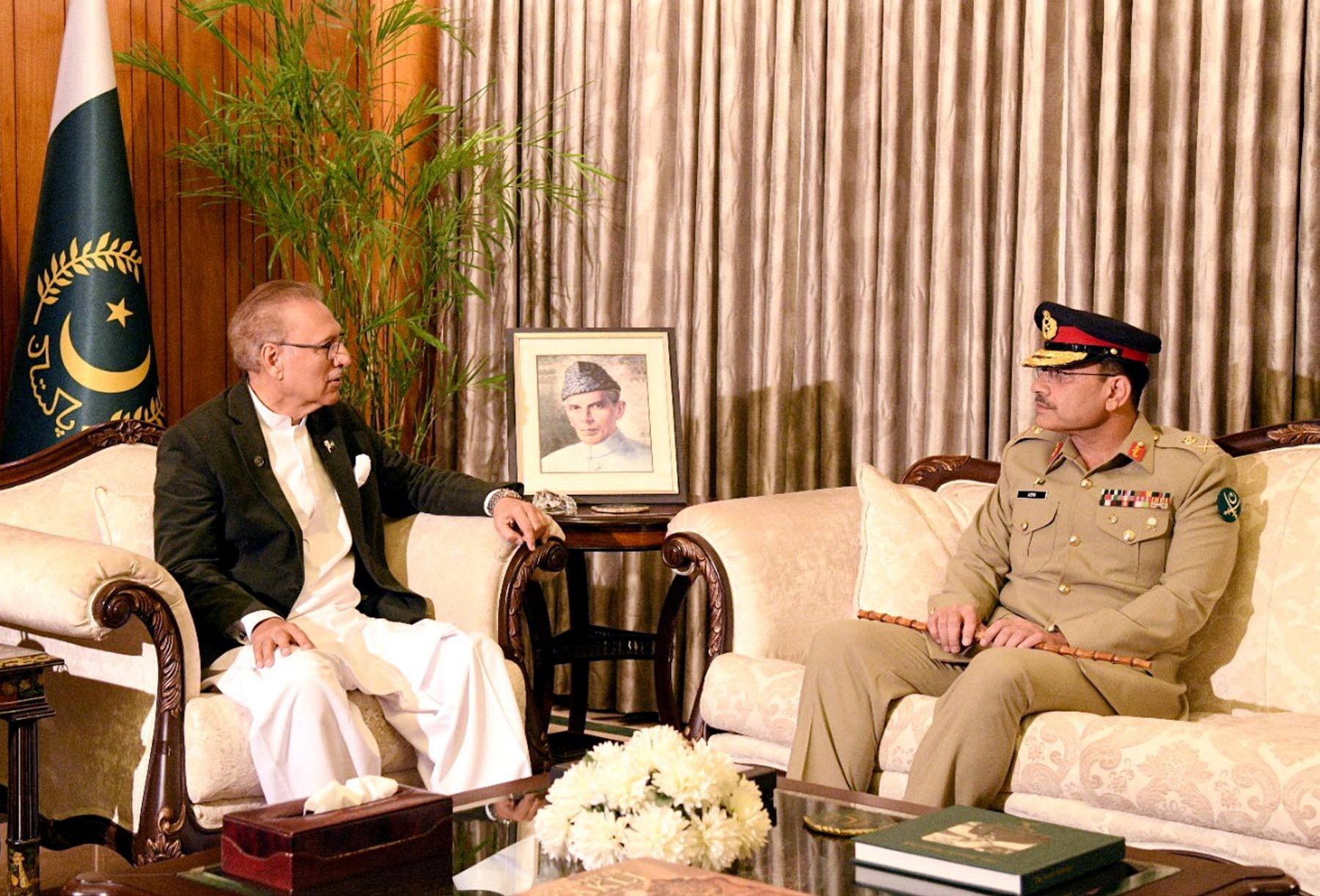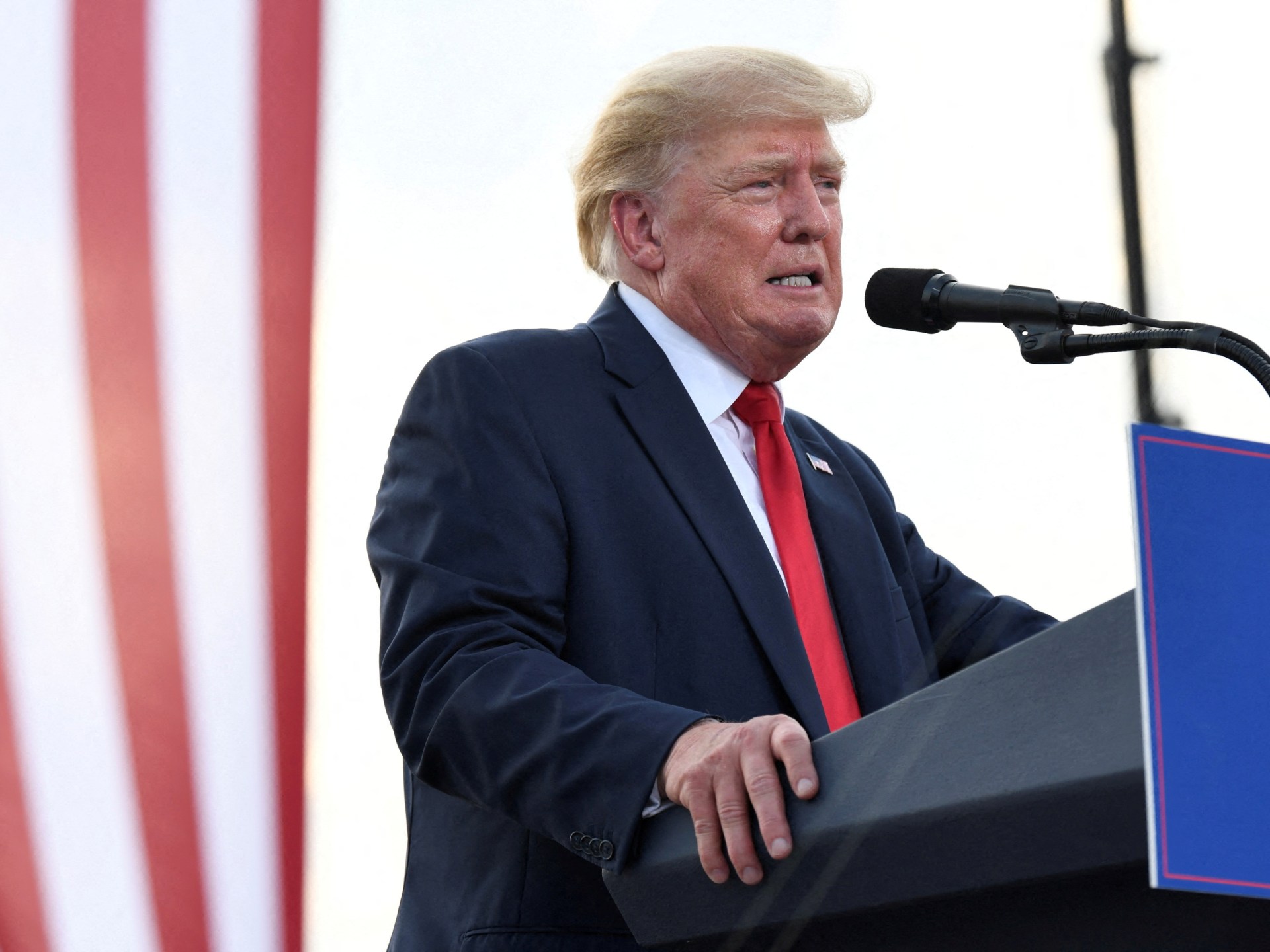In Pakistan’s elections, the Lord of the Rings is showing his wrath | Elections
First, the fundamentals: In Pakistan, the election cycle is not the only process to be watched when determining the future political direction of the country; the cycle of the appointments of, and extensions granted to, the army chief is of equal and sometimes greater importance.
That is because Pakistan’s chequered political history is the tale of a push and pull between civilian politicians and the military establishment; ground is gained and ceded and relations span the spectrum of cooperation, co-optation and confrontation – sometimes within the same tenure – and all depending on who is the current face of the civilian regime and who is heading the establishment. Nothing is a monolith, after all.
But inevitably, a falling-out does tend to take place and that is because, in Pakistan, much as in Tolkien’s Middle-earth, there is only one Lord of the Rings, and he does not like to share power. His influence may ebb at times, and he may even go into hibernation for years, but eventually, the true lord always returns. To shift fictional universes for a moment, one could say that the empire always strikes back, and usually with a vengeance.
Right now, that vengeance is on full, naked, display with just about every trick in the book, traditional and brand-new, being used to decimate the former governing party, the Pakistan Tehreek-e-Insaf (PTI).
It is not quite the death of a thousand cuts – more like a dozen or so – and it is designed to whittle the party down to nothing before the elections.
This week, former Prime Minister Imran Khan was sentenced to 10 years and 14 years in jail in two consecutive cases and has been barred from holding public office for a decade. Many legal experts have called the proceedings hasty and in violation of due process, while also pointing out that the sentences are draconian and disproportionate.
However, the very questionable conduct of these cases also allows for the convictions and sentences to be struck down during the appeal process, leaving the door open for a “redeemed” and “acceptable” Khan to rejoin the political fray once it becomes convenient for the state to allow this. Whether he will play ball at any time in the future is an open question, but we have seen this particular drama unfold a few times before, with today’s villains becoming tomorrow’s heroes; the script tends to remain the same even if the actors change.
Many other PTI leaders have also been imprisoned along with a host of party workers, most of whom were arrested in the aftermath of the events of May 9, 2023, when military installations were attacked during protests against the army that turned violent. The PTI claims it was a false flag event while the establishment — as the military in Pakistan is euphemistically known — and its allies insist it was an attempt to cause a mutiny in the ranks of the military. The truth, as usual, likely lies somewhere in the middle.
In any case, PTI leaders and workers are facing several cases at a time, with acquittal in one leading to detention or imprisonment in another; it is a virtual revolving door of justice, as it were, designed to break the will and prevent said leaders from campaigning and mobilising their voters.
Those who bend the knee are forgiven after confessional news conferences or clearly staged interviews and are then usually inducted into other parties or bow out of politics entirely.
It is near impossible for the PTI to mobilise in large numbers, staging the kind of rallies and corner meetings that are a feature of any election. Moreover, PTI flags, posters and banners are largely missing from the streets of Pakistan, and credible reports indicate that this is at least in part because printers have been instructed not to cater to such orders.
With Khan unable to conduct his signature daily speeches, one important link to the voters is cut off, and the very display of his image on television is also banned. But the PTI adapted by doing what they do best: leveraging social media and technology, a game in which they are light years ahead of the opposition. In this case, from notes provided by Khan himself, they created an artificial intelligence-generated voice to address a virtual rally, a first not only in Pakistan but perhaps anywhere in the world.
Then begins the digital cat-and-mouse game, with Pakistan’s internet experiencing a mysterious slowdown just about every time the PTI decides to hold an online rally. The authorities explain this away as a “technical” fault due to an unexplained “upgradation” of software, but if you believe that you may as well believe that there is a terribly persistent shark loose somewhere in the Arabian Sea which, due to a personal grudge against the PTI, decides to chew the undersea internet cable right before any such rally.
Yet, the real arterial wound to the PTI was the controversial decision to take away the party’s election symbol: the cricket bat. This works on many levels.
PTI candidates will now have to contest as independents, which means that the party will not be able to avail the 70 National Assembly seats reserved for women and minorities that are proportionally distributed among all parties that manage to get more than 5 percent of the vote.
Then there is the confusion: PTI nominees are contesting the elections with a host of symbols and if even 10 percent of PTI voters are uncertain who their actual candidate is, well then, that is another cut right there. To counter this, the PTI launched an app in which one can enter the constituency name and find out who the party is fielding, and to counter a possible chewing on the internet cable by the aforementioned shark, an offline version was also created, along with a website.
But to counter that countermove, a fake website was created with almost the same name as the actual website but which provided incorrect information. The PTI has responded by hosting an alternate version of the website on Github, a platform that is the backbone of the software that countless local businesses rely on. Shutting it down would effectively mean shutting down Pakistan’s software industry.
The PTI is clearly counting on what it sees as a wave of sympathy for Khan, particularly among young voters, who now number more than 56 million and constitute about 44 percent of the electorate. Adding to this, in their calculus, is what they expect will be a protest vote from citizens fed up with countless rounds of political engineering.
But even in the case of a massive turnout favouring the PTI one major problem remains: those elected will be elected as independents and will be susceptible to pressure or inducements to join other parties after being elected, and because they are independents, will be able to do so without incurring any legal penalties.
Of course, throughout Pakistan’s political history, civilian politicians have bent the knee (forcibly or willingly) to the establishment of the time, and at other times have leveraged or cooperated with that same establishment to bring their opponents to heel.
The PTI allied with the military to destabilise the government of former (and possibly future) Prime Minister Nawaz Sharif and, when in power, spared no effort in trying to erase their political opponents from the map. They relied on the same selective application of law and naked state power that they are now facing in a concentrated and accelerated form.
It is an open secret that it was the establishment that kept the PTI’s governing coalition together, and when a clash of interests and egos started – it always does – then that same establishment stood aside and let the whole edifice crumble.
Now the military appears to have bet on a different horse. Sharif’s party, the Pakistan Muslim League (Nawaz), tactically and temporarily joined hands with the Pakistan People’s Party controlled by the Bhutto family, just to get rid of Khan — even though they themselves have never been on good terms and have also faced the wrath of the establishment time and again.
In that lies the central tragedy of Pakistani politics: that politicians only acknowledge the wrongs done to them, and not the wrongs done to their opponents; that they only remember fair play and democratic norms when out of power. That today’s victims are tomorrow’s oppressors or, at the very least, partners in that oppression.
Perhaps one day that will change, but for now, the Lord giveth and the Lord taketh away.
The views expressed in this article are the author’s own and do not necessarily reflect Al Jazeera’s editorial stance.




